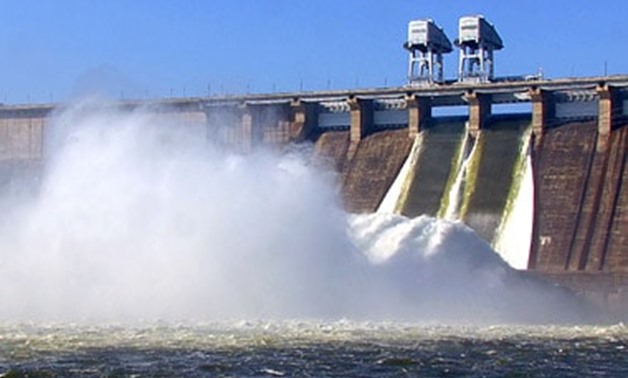
Grand Ethiopian Renaissance Dam – Reuters
CAIRO - 15 February 2020: Egyptian Foreign Minister Sameh Shoukry said that his country is expected a fair and final agreement between Egypt, Sudan and Ethiopia over the controversial Grand Ethiopian Renaissance Dam (GERD), reported the state-owned news agency MENA.
Shoukry added that the expected final deal, which comes under the brokerage of the United States of America, and the World Bank, will serve the interests of the three Nile basin countries, noting that both Egypt and Sudan [the downstream countries] showed identical stances concerning some issues of the dam.
The Foreign Minister voiced his confidence that the US role and its relations with the three countries will lead to a balanced and fair deal.
Following the final round of the meetings between the countries and the US and the WB representatives in Washington D.C.on February 12-13, 2020, the participants issued a communique saying that the negotiations achieved a concrete development and a final deal will be signed late February 2020.
Egypt expressed its deep appreciation to the US Treasury's role and US President Donald Trump's efforts and the WB role in reaching this "comprehensive agreement that realizes the interests of the three countries and lays the foundations for cooperation and integration between them, thus benefiting the entire region," said Egyptian Foreign Ministry spokesperson Ahmed Hafez in a statement on Friday morning.
The agreement "includes the dam’s stage-based filling plan, and specific procedures to deal with droughts, prolonged droughts, and dry years that may coincide with the filling process, in addition to the long-term operationalization rules, including the GERD operationalization under normal hydrological conditions, as well as procedures for dealing with droughts, prolonged droughts, and dry years," Hafez said.
"Negotiations also tackled the coordination mechanism between the three countries, which will undertake the follow-up to the implementation of the agreement on the GERD filling and operationalization, and clauses determining the technical data and information to be circulated in order to verify the implementation of the agreement, as well as provisions related to the dam’s safety and dealing with emergency situations, as well as a binding mechanism to resolve any disputes that may arise regarding the interpretation or implementation of this agreement," he added.
The difference between the three Nile basin countries dates back to May 2011 when Ethiopia started building the dam; Egypt voiced concern over its water share [55.5 billion cubic meters]. Three years later, a series of tripartite talks between the two countries along with Sudan began to reach an agreement while Ethiopia continued the dam construction.
In 2015, the three countries signed the Declaration of Principles, per which the downstream countries [Egypt and Sudan] should not be negatively affected by the construction of the dam. Since then, the talks have been resumed, but In October 2019 blamed Addis Ababa for hindering a final agreement concerning a technical problem, calling for activating the Article No. 10 of the Declaration of Principles, which stipulates that if the three countries could not find a solution to these differences, they have to ask for mediation.
Additional reporting by Samar Samir

Comments
Leave a Comment